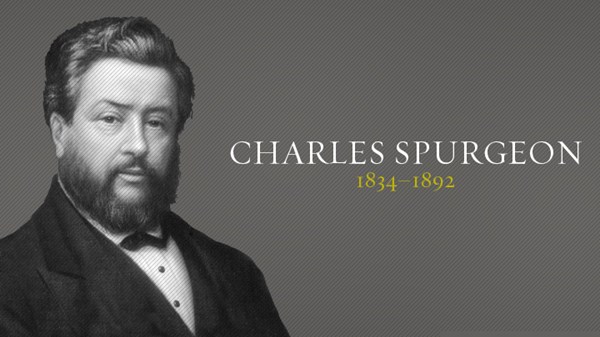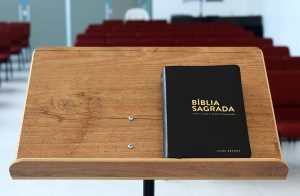- Charles
- Spurgeon
-
Finest nineteenth-century preacher

“I am perhaps vulgar, but it is not intentional, save that I must and will make people listen.”
When Charles Spurgeon died in January 1892, London went into mourning. Nearly 60,000 people came to pay homage during the three days his body lay in state at the Metropolitan Tabernacle. Some 100,000 lined the streets as a funeral parade two miles long followed his hearse from the Tabernacle to the cemetery. Flags flew at half-staff and shops and pubs were closed.
Timeline
1816
Richard Allen elected bishop of new AME church
1819
Channing issues Unitarian Christianity
1827
J. N. Darby founds the Plymouth Brethren
1834
Charles Spurgeon born
1892
Charles Spurgeon dies
1896
Billy Sunday begins leading revivals
All this for a Victorian minister—who also happened to be the most extraordinary preacher of his day.
Calvinist Baptist
Spurgeon was born in Kelvedon, Essex, to a family of clerics. His father and grandfather were Nonconformist ministers (meaning they weren’t Anglicans), and Spurgeon’s earliest memories were of looking at the pictures in Pilgrim’s Progress and Foxe’s Book of Martyrs.
His formal education was limited, even by nineteenth-century standards: he attended local schools for a few years but never earned a university degree. He lived in Cambridge for a time, where he combined the roles of scholar and teaching assistant and was briefly tutored in Greek. Though he eschewed formal education, all his life he valued learning and books—especially those by Puritan divines—and his personal library eventually exceeded 12,000 volumes.
At age 15, Spurgeon broke with family tradition by becoming a Baptist. He attributed this conversion to a sermon heard by “chance”—when a snowstorm blew him away from his destination into a Primitive Methodist chapel. The experience forced Spurgeon to re-evaluate his idea on, among other things, infant baptism. Within four months he was baptized and joined a Baptist church.
His theology, however, remained more or less Calvinist, though he liked to think of himself as a “mere Christian.” “I am never ashamed to avow myself a Calvinist,” he once said. “I do not hesitate to take the name of Baptist, but if I am asked what is my creed, I reply, ‘It is Jesus Christ.'”
Preaching sensation
Still a teen, Spurgeon began preaching in rural Cambridgeshire. He quickly filled the pews in his first pastorate in the village of Waterbeach. He had a boyish appearance that contrasted sharply with the maturity of his sermons. He had a good memory and always spoke extemporaneously from an outline.
His energy and oratorical skills and harmonious voice earned him such a reputation that within a year and a half, he was invited to preach in London, at the historic New Park Street Chapel. The congregation of 232 was so impressed, it voted for him to preach an additional six months. He moved to the city and never left.
As word spread of his abilities, he was invited to preach throughout London and the nation. No chapel seemed large enough to hold those who wanted to hear the “the preaching sensation of London.” He preached to tens of thousands in London’s greatest halls—Exeter, Surry Gardens, Agricultural. In 1861 his congregation, which kept extending his call, moved to the new Metropolitan Tabernacle, which seated 5,600.
At the center of controversy
Spurgeon did not go unnoticed in the secular press. On the one hand, his sermons were published in the Monday edition of the London Times, and even the New York Times. On the other hand, he was severely criticized by more traditional Protestants. His dramatic flair—he would pace the platform, acting out biblical stories, and fill his sermons with sentimental tales of dying children, grieving parents, and repentant harlots—offended many, and he was called “the Exeter Hall demagogue” and “the pulpit buffoon.”
Spurgeon replied, “I am perhaps vulgar, but it is not intentional, save that I must and will make people listen. My firm conviction is that we have had enough polite preachers.”
Not only his style, but his convictions created controversy as well. He never flinched from strong preaching: in a sermon on Acts 26:28, he said, “Almost persuaded to be a Christian is like the man who was almost pardoned, but he was hanged; like the man who was almost rescued, but he was burned in the house. A man that is almost saved is damned.”
On certain subjects, he was incapable of moderation: Rome, ritualism, hypocrisy, and modernism—the last of which became the center of a controversy that would mark his last years in ministry.
The “Down-Grade Controversy,” as it came to be known, was started in 1887 when Spurgeon began publicly claiming that some of his fellow Baptist ministers were “down grading” the faith. This was the late-nineteenth century, when Darwinism and critical biblical scholarship were compelling many Christians to re-evaluate their understanding of the Bible. Spurgeon believed the issue was not one of interpretation but of the essentials of the faith. He proclaimed in his monthly, The Sword and the Trowel, “Our warfare is with men who are giving up the atoning sacrifice, denying the inspiration of Holy Scripture, and casting slurs upon justification by faith.”
The controversy took its toll on the denomination (which censured Spurgeon) and upon Spurgeon, whose already delicate health deteriorated even more during the year-long affair (he suffered from, among other things, recurring depressions and gout).
Spurgeon’s contributions were larger than his pulpit, however. He established alms houses and an orphanage, and his Pastor’s College, opened in 1855, continues to this day. He preached his last sermon in June 1891 and died six months later.
By: https://www.christianitytoday.com

Prayer for California.
Dear God , We humbly come before You to pray for all the people of California. Protect and bless those who are facing hardships. Give























2 Responses
Your article gave me a lot of inspiration, I hope you can explain your point of view in more detail, because I have some doubts, thank you. 20bet
Your point of view caught my eye and was very interesting. Thanks. I have a question for you.